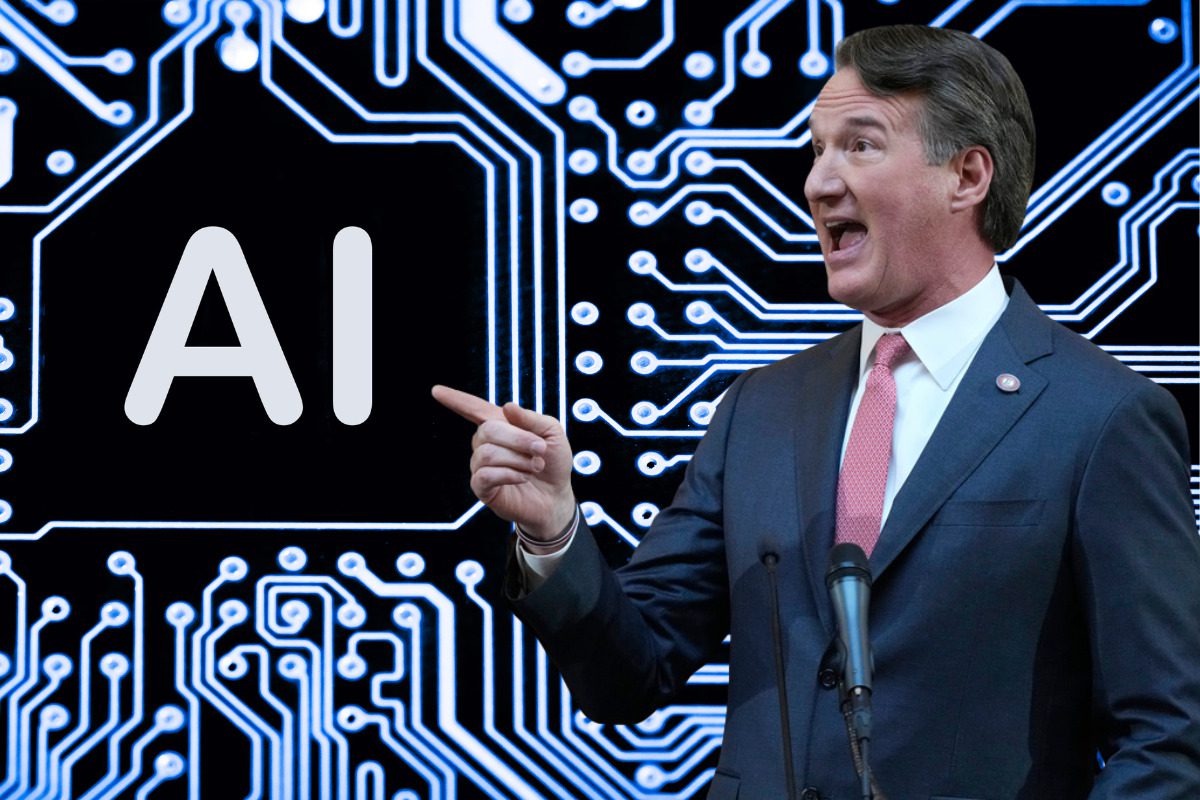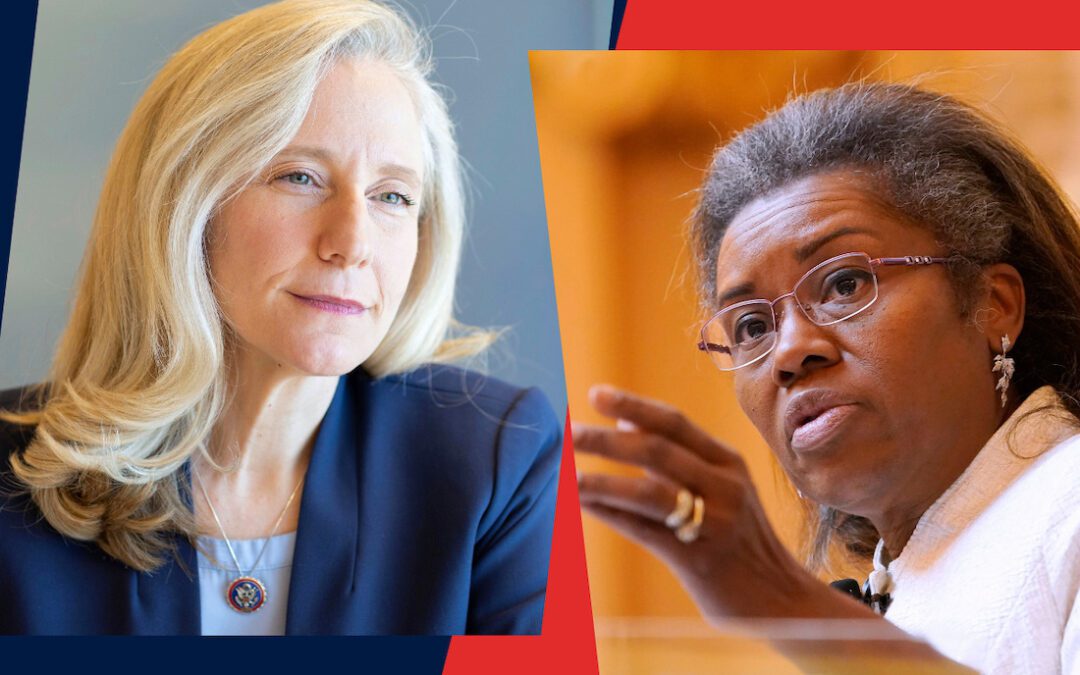
AP Photo/Steve Helber, Photo Collage/Lucas Henkel
While Gov. Glenn Youngkin says that his new AI pilot program will “unleash Virginia’s economy,” tech experts reveal that it could actually harm Virginia’s residents.
Despite increasing reports of its infrastructure already harming the health and wealth of Virginians, Gov. Glenn Youngkin has found another way to weave artificial intelligence (AI) into the state’s government.
He recently announced that the state of Virginia is launching a pilot program that will use agentic AI to scan thousands of pages of state regulations to find redundancies, contradictions, and overly complex language, and then streamline those regulations in the hopes of “enhancing governmental efficiency.”
Youngkin’s announcement came just days after the passage of President Trump’s “Big Beautiful Bill,” which includes a provision allowing states and local governments to create their own regulations for AI. At the same time, the bill provides states with financial incentives—like federal funding, grants, and tax breaks—for companies that want to build or expand AI infrastructure in the US. That includes data centers, microchip factories, and research projects.
Read More: Strange timing? Big Tech donates to VA politicians
“Using emergent artificial intelligence tools, we will push this effort further in order to continue our mission of unleashing Virginia’s economy in a way that benefits all of its citizens, “ Youngkin said in a press release.
However, AI accountability advocate and attorney Kevin De Liban says that implementing AI in government systems isn’t as easy as Youngkin makes it seem.
“There’s just very little understanding of all the harmful ways AI is being used to make individual decisions,” explained De Liban, who is also the former director of advocacy at Legal Aid of Arkansas, where he ended the state’s use of algorithms that cut the in-home care of elderly and disabled people and stopped Medicaid work reporting requirements that had stripped health insurance from 18,000 people. He was even able to hold state officials personally liable for violating the constitutional rights of the victims and forced them to stop using the algorithm.
Today, as the founder and president of TechTonic Justice, a nonprofit organization advocating for low-income people left behind by AI, De Liban continues his fight for communities impacted by AI and algorithms.
“What [Youngkin] is boasting about is cutting protections. He’s not boasting about making the language clear or easier to understand. He’s boasting about getting rid of the regulations and protections that are enshrined in those regulations,” said De Liban, adding that Youngkin is joining the increasing number of right-wing politicians embracing AI as a way to undermine efforts to understand what constituents are going through—all while putting money into the hands of the ultra wealthy as executive orders aimed at loosening policies “that act as barriers to American AI innovation” continue to come from Trump’s desk.
“There’s been a multi-generation campaign, largely from the right, to undermine the ability of the government to do anything, and [AI] is just the latest weapon in that war,” said De Liban.
De Liban and other tech policy analysts agree that it is possible to make regulations easier to read or more accessible to the public. They also agree that government officials like Youngkin need to do that through people who know the meaning of the regulations and can ensure that the changes made aren’t going to change the meaning or the protections of those laws.
“I think of this as a very powerful tool, but certainly in regulation, we still need human judgment,” said Max Stephenson, Jr., director of Virginia Tech’s Institute for Policy and Governance and a professor of public and international affairs, in an interview with 8News.
“You can program algorithms for routinized tasks, things that are uniform and repetitive. But for complex discretionary choices, we’re not there yet—and maybe never will be.”

When a scam hits home: How a Hampton email scheme exposed a bigger problem
When a Hampton city email circulated the community’s inboxes, folks found out that it wasn’t what it seemed—hackers had found a way to scam them out...

Stark contrast between Spanberger, Earle-Sears when it comes to Virginians’ reproductive freedom
The Republican nominee for governor of Virginia has a few opinions when it comes to women’s health. Lt. Gov. Winsome Earle-Sears—who the Virginia...

UVA opens National Security Data and Policy Institute
The University of Virginia has launched the National Security Data and Policy Institute, focusing on AI and computing to enhance U.S. national...

VDOT warns of new text scam in Virginia
The toll road scam? That's old news. The newest scam on the block now involves a phone text purportedly sent by the Virginia Department of Motor...

Charlottesville non-licensed school staff vying for collective bargaining victory
Licensed education staff negotiated an historic contract—now non-licensed workers hope to follow. The licensed staff of Charlottesville City Schools...

Petersburg and the true story of Memorial Day’s origins
While more than two dozen cities and towns across the United States lay claim to being the birthplace of Memorial Day, Petersburg holds a compelling...





